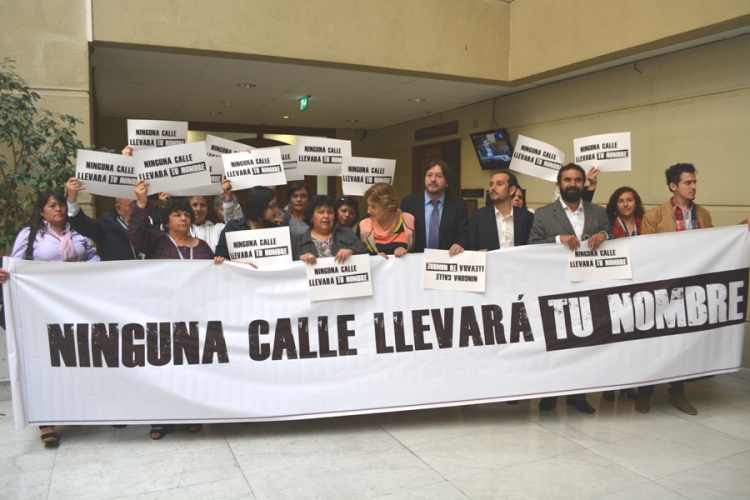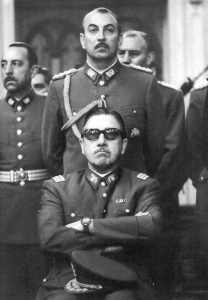
Chileans want to ban Pinochet’s name from public places
A project has been started in Chile to prohibit the naming of streets or public places after the late President Augusto Pinochet or any of his aides.
A bill to that effect was introduced in Congress by several deputies of the ruling coalition, the New Majority, and the Group of Relatives of Disappeared Detainees. Other human rights groups supported the bill.

The movement is called “No street will bear your name.” The bill was introduced on Tuesday (Nov. 25), the 99th anniversary of Pinochet’s birth. He died in 2006 at the age of 91.
The bill’s proponents say they’re basing their action on similar experiences elsewhere, such as Germany and Spain, where the names of Adolf Hitler and Francisco Franco are not used when naming public places.
Communist Party deputy Karol Cariola told the media that “it seems to us unacceptable, a lack of respect that even today the southern highway bears the name of Augusto Pinochet. It seems to us a disrespect that agencies of the Military School, such as its library, bear the name of Augusto Pinochet.”
Deputy Camila Vallejo, also a Communist legislator, said that “it is unacceptable that streets and other institutions bear the names of sinister characters whose actions branded with fire the lives of so many Chileans.”
Pinochet, an Army general, came to power in a coup d’état on Sept. 11, 1973, that deposed then-President Salvador Allende Gossens. Under attack, Allende killed himself. In the coup’s aftermath, thousands of Chileans were arrested and many were killed. Pinochet ruled Chile dictatorially for 17 years before stepping down in 1990.


